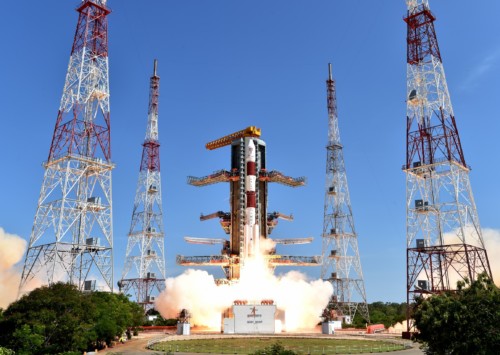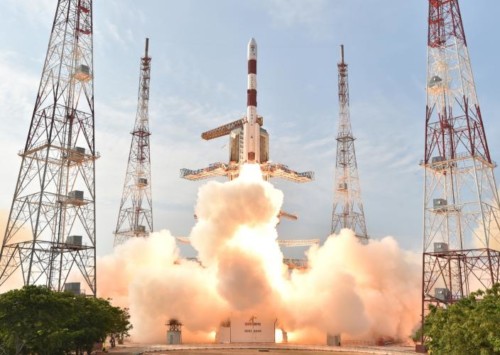ISRO launching new satellite and boosting the manufacturing of more
In 2013, from the grounds of French Guiana, the Indian Space Research Organisation (ISRO) had successfully launched the advance weather satellite ‘INSAT-3D’. ISRO is now set to launch the geostationary weather satellite, INSAT-3DR, from India’s rocket port, Sriharikota in Andhra Pradesh on the south-eastern coast.
A heavy rocket, the geosynchronous satellite launch vehicle (GSLV-Mk II), will launch the satellite by the end of August 2016. It will be followed by the launch of ScatSat- a weather monitoring and forecasting satellite –with polar satellite launch vehicle (PSLV), in September 2016.
As of July 2016, four launches have been made using the PSLV, which has also launched nearly 60 foreign satellites so far in its yet productive history.
ISRO is targeting to increase the number of its satellite and rocket launches from the current six-eight per year to 12-18 annually.
Launch of GSLV-Mk-III, is expected by year end. It will carry communication satellite GSAT 19 weighing around 3.2 ton – the heaviest satellite to be lifted by an Indian rocket from Sriharikota .
ISRO will also be testing its scramjet or air breathing engine for future use to power Indian rockets.
Boosting Indian spacecraft manufacturing
ISRO is eliciting industry support for spacecraft realisation on an ‘end-to-end’ basis to rapidly meet the increasing national demand for space based services. It had organised a conference on Enabling Spacecraft Systems Realisation (ESSRI-2016) at its satellite centre in Bengaluru in June 2016, for the same.
The space agency has been outsourcing a lot of models from Indian industries which manufacture subsystems of spacecrafts. But now, the gap to the manufacturing of an end-to-end Indian spacecraft by domestic manufacturers, is trying to be filled.
ISRO’s requirements in respect to hardware, technologies, and quality and delivery schedule are expected to be met by industries which will be its qualified vendors, even if it is a lengthy and challenging process.
Indian private companies like Godrej and Boyce, Larsen and Turbo, MTAR and Walchandnagar Industries have partnered with ISRO in producing a major percentage of launch vehicle parts and sub-units.
To further boost private sector partnerships in Indian PSLV mission, ISRO will be launching two new space parks, one in Bengaluru and another at Sriharikota. These parks are supposed to encourage new partnerships and domestic participation in integrating sub-systems to assemble and launch rockets.
The space agency is not only engaging the domestic sector but is also preparing it in a way that will eventually make way for the consortium that will build and launch the Indian space work-horse PSLV rockets, thus delegating an end-to-end responsibility to these companies.












